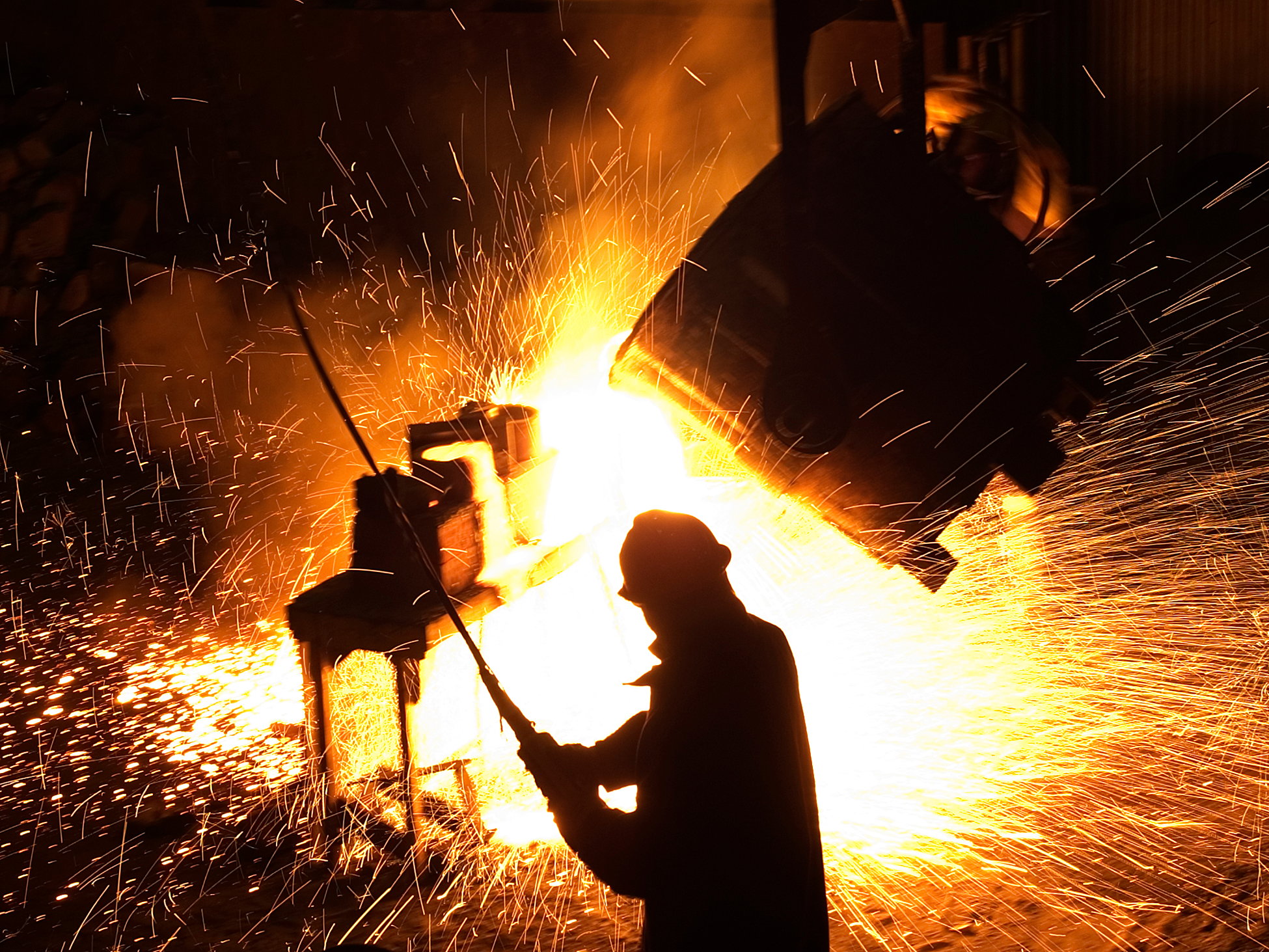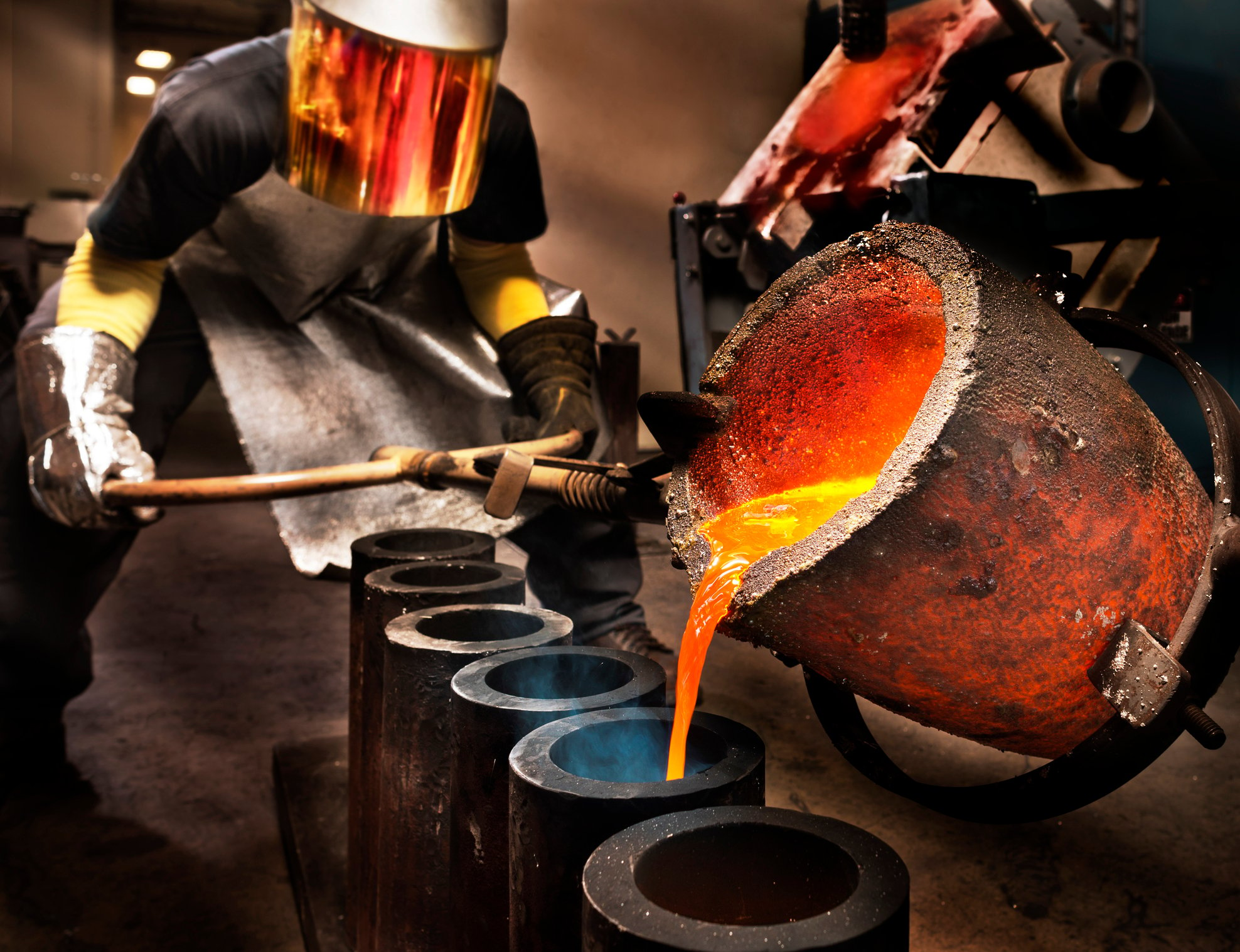Cliffs Natural Resources (CLF +7.04%) has gone beyond its historical emphasis on iron ore production to become a one-stop shop for steel producers seeking the full range of mined products they need to do business. But even though its expansion has transformed the company, investors still need to be aware that Cliffs needs to overcome significant hurdles in the future.
My premium report on Cliffs Natural Resources goes into more detail on this natural-resources company and includes the following description of three major risks the company will face in the future. Let's take a closer look at them.
1. Will Cliffs be able to maintain its debt load and refinance maturing loans and notes?
Cliffs has a substantial amount of outstanding debt -- a total of about $3.88 billion as of Sept. 30. The company has so far done a good job of obtaining long-maturity financing: Its notes extend as far out as 2040, and nearly $2.3 billion of its debt is not due until 2020 or later.
But Cliffs does have some refinancing risk, with $325 million in notes maturing within the next three years. Moreover, it has relied on variable-rate term and revolving loans for a significant portion of its debt -- more than $1.17 billion. With those loans having a final maturity of 2016, Cliffs will need to be in a better financial position in order to get similar terms. Moreover, because they aren't fixed-rate loans, Cliffs has exposure to rising interest rates whenever they occur. That doesn't pose an immediate threat, but investors should watch Cliffs closely to see whether it seeks to lock in current low rates on its shorter-maturity debt.
2. Will Cliffs' mines work out as well as the company expects?
With any mining company, things don't always go as well as investors hope. Whether the company has to close a mine for safety issues -- as Hecla Mining (HL 1.24%) did in early 2012 -- or deal with cost overruns like the ones Kinross Gold (KGC 0.59%) and Barrick Gold (ABX 0.34%) have faced, unexpected setbacks can wreak havoc on your investing thesis.
Cliffs has had to deal with some potential issues recently. During the third quarter of 2012, Cliffs' newer open-pit mines required the company to move 50% more material than in the prior-year quarter without realizing nearly the gain in production such increased throughput would usually imply. In addition, Cliffs Natural said that a huge 900,000-ton quantity of low-grade iron ore fetched lower prices than typical higher-grade ore.
Of course, this can also work in the company's favor. During the same quarter, Cliffs mined a greater proportion of premium low-volatile metallurgical coal, which fetched higher prices than less desirable coal grades. Over time, these effects often cancel each other out, but they nevertheless pose significant risks if an initially short-term problem persists.
3. Will the global economy fall into a serious recession?
Perhaps the biggest risk Cliffs faces is the potential for a true setback for the world's economic growth. Investors have been fearful of a Chinese slowdown, even though growth rates of 7% and higher remain extremely attractive there.
For the most part, investors don't expect cataclysmic problems in the foreseeable future. Yet until Europe solves its growing woes across the continent, a European implosion could spread throughout the global economy and bring another wave down for construction and infrastructure activity. That poses a huge risk for Cliffs that is likely to stick around for a long time.





